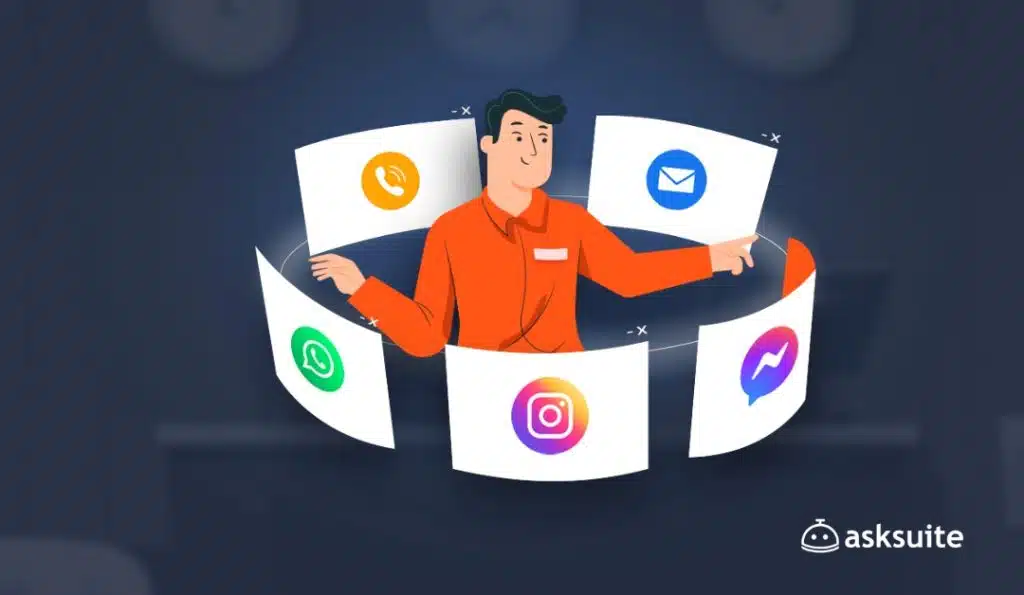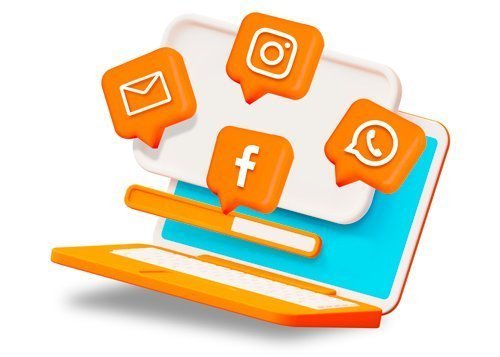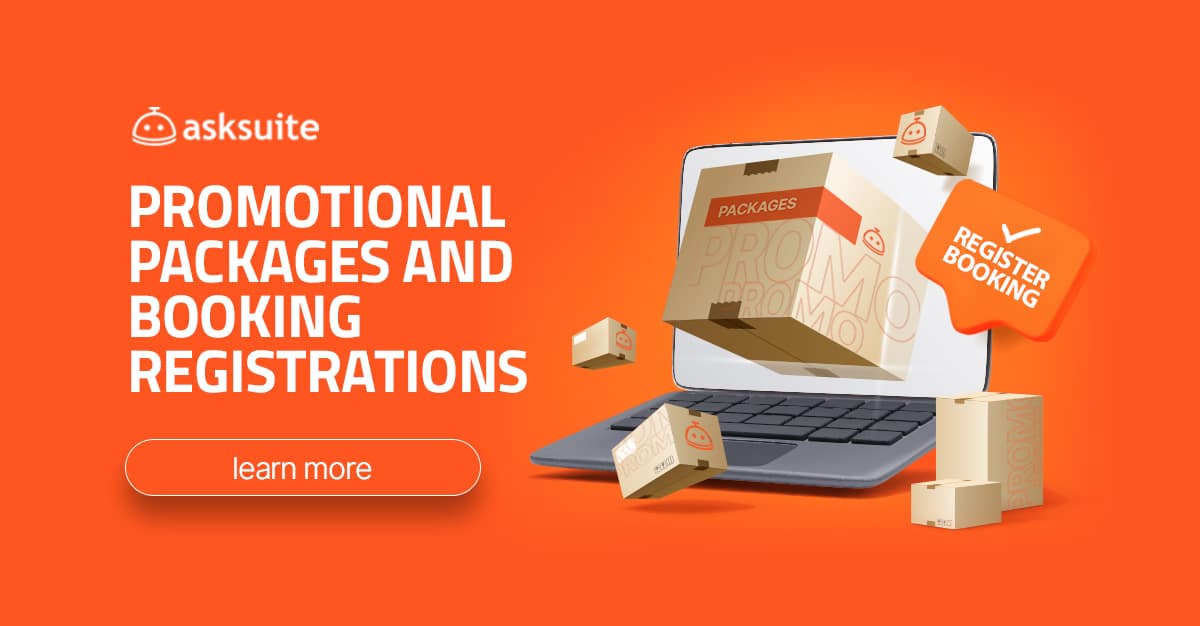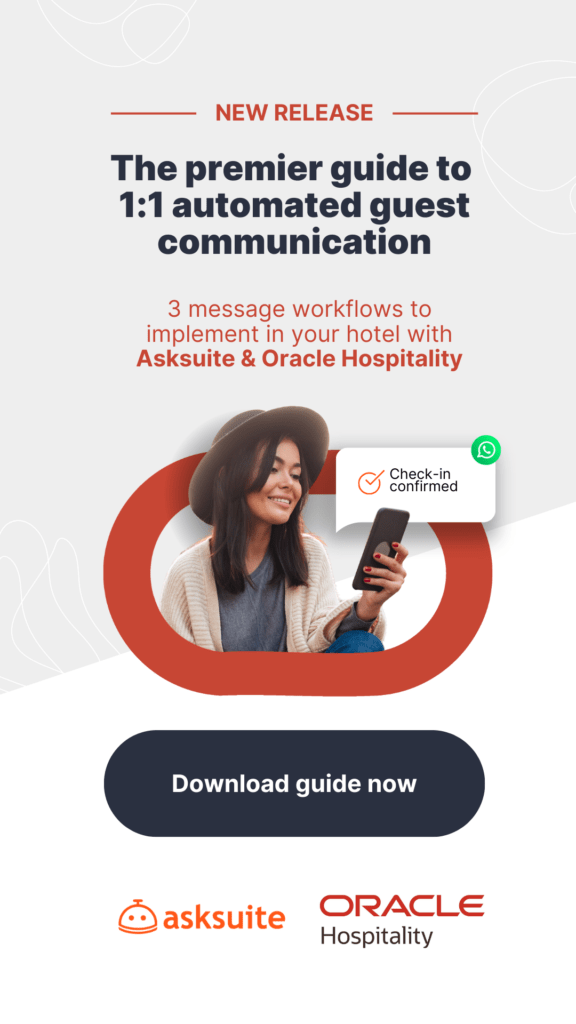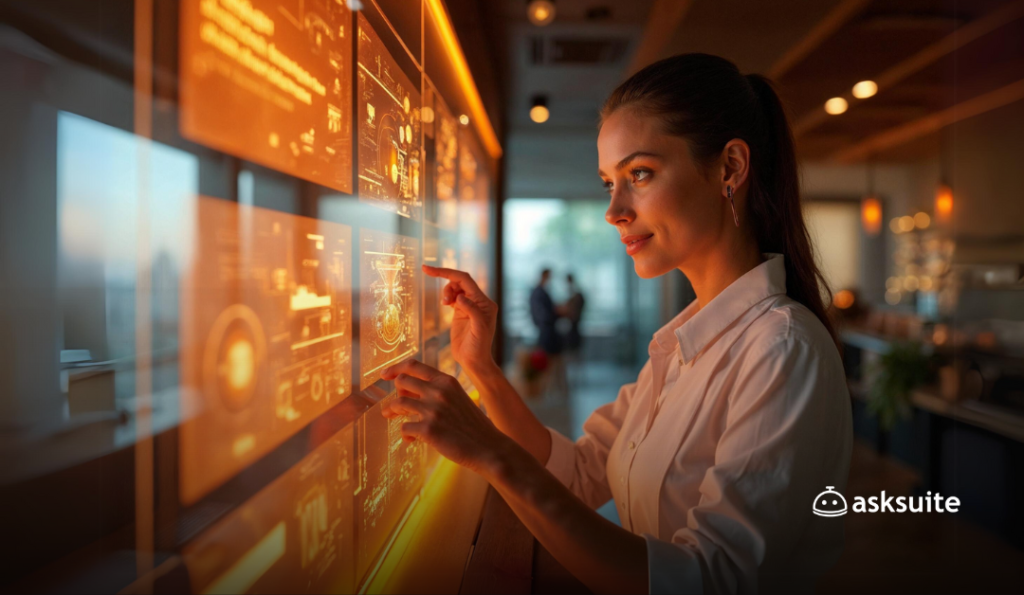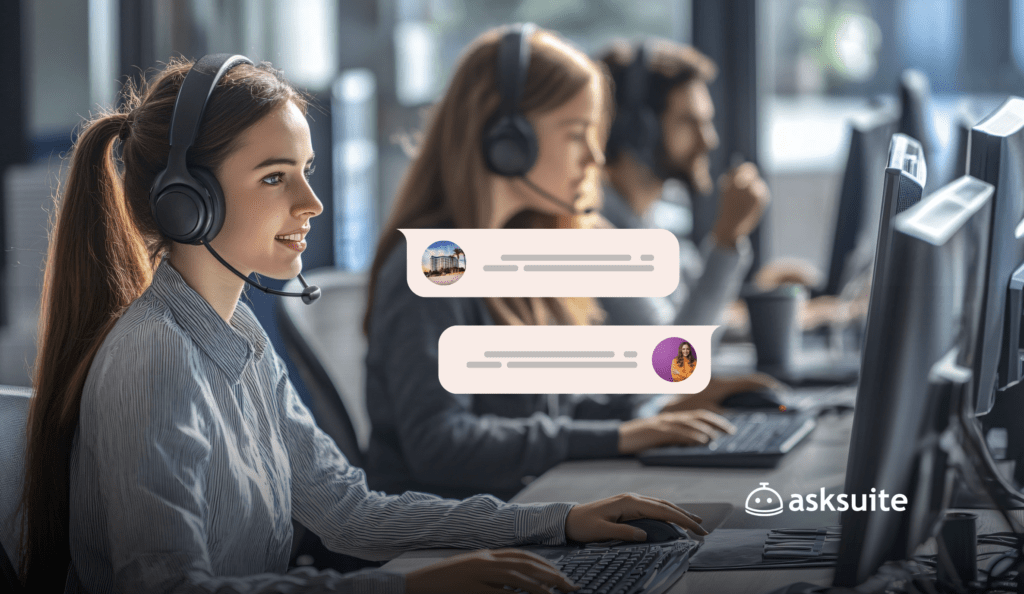Modern customers have become impatient, hungry for customized experiences, with low tolerance for mistakes.
The fast-paced social media and accessibility to real-time information through mobile devices have reshaped how we see the world. This has compelled travelers to seek immediate responses regardless of where they are on the buying journey.
The surge in customer service channels presents an unprecedented challenge for hoteliers, as their response time window starts to dwindle. This intensifies as agents have to navigate multiple channels and monitor previous interactions to ensure guests feel acknowledged and understood.
The need to streamline the booking process and attain a firmer grasp of concurrent customer needs has led us into the era of omnichannel solutions.
But to truly harness the transformative potential of omnichannel service software within the hospitality industry, we must first delve into the differences between omnichannel and multichannel solutions.
Understand the difference: omnichannel vs. multichannel
In a nutshell, a multichannel strategy means communicating with travelers on separate channels. An Omnichannel strategy means communicating with travelers by integrating all channels on a single platform.
Multichannel
In a multichannel approach, it’s understood that when more channels are offered, hotels can reach more interested travelers.
Hotels increase the chance of connecting with new customers through a multichannel strategy. But every channel is used separately, and the customer experience can be compromised because data is not shared across all channels.
While beneficial in expanding a hotel’s reach and visibility, a multichannel strategy can present significant challenges for hotel staff. The need to constantly juggle between various apps and tabs to reply to inquiries from different channels can be overwhelming and time-consuming.
This not only affects the response-time, but also increases the risk of overlooking essential information from travelers. As the volume of messages and inquiries grows, the likelihood of errors escalates, negatively impacting the hotel’s reputation.
Omnichannel
Just as your hotel uses a Channel Management System (CMS) to centralize each sales channel from many different sources, omnichannel customer service management can unify communication channels on a single screen.
With a CMS, when you update a room rate, all channels automatically update as well, without having to change each one manually. Similarly, in the omnichannel framework, reservation agents don’t have to constantly switch tabs to respond to every demand. They can manage all service channels on one platform.
To this end, your hotel may have many communication channels at travelers’ disposal, but if these channels don’t talk to each other, it is not an omnichannel service.
In an omnichannel approach, it doesn’t matter which agent oversees the customer service or on which channel the initial inquiry takes place. All channels are connected and data is shared, making it easier for the customer to engage and build a relationship with the hotel.
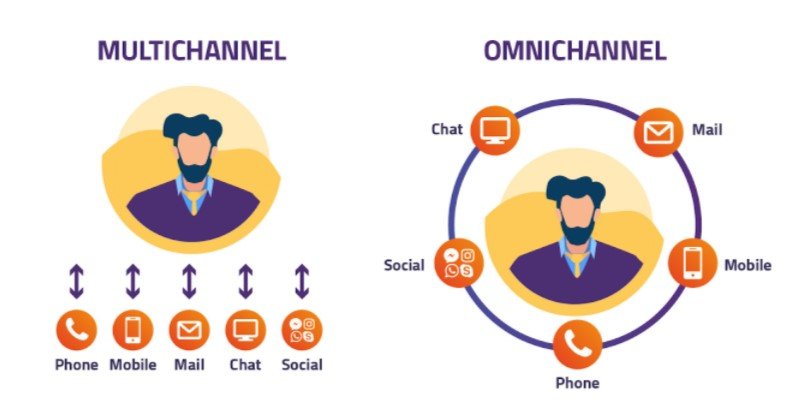
Advantages of adopting an omnichannel
The modern traveler uses multiple channels, so it’s important for hotels to be available wherever potential customers are. The mistake that many hotels are making is that they’re utilizing social media only as a marketing or advertising tool.
While thousands of travelers communicate on those channels, many hotels aren’t prepared to respond on social media on top of all the other ones. Customers move on when they’re not responded to immediately. Even though hotels invest in attracting these travelers, they’re not prepared to serve them.
That’s why it’s important to be available on different channels, integrating them into your customer service experience:
Omnichannel communication matters
Enhance the guest experience
To invest in technology is to invest in the guest experience. In the competitive business world, it’s the guest experience that has the power to attract new customers and retain the current ones.
While technology is part of our daily routine, consumers are looking for both speed and efficiency. To impress guests, it’s necessary to go beyond free Wi-Fi. The combination of a customer-oriented team with hotel tech ensures excellent service and a fantastic experience.
An omnichannel software captures and stores guest data, allowing staff to anticipate needs and preferences, which in turn leads to increased customer satisfaction. Consequently, hotels can reap the benefits of streamlined operations, increased productivity, and improved overall performance, all while delivering a memorable guest experience.
Recommended: Bridging the Gap: How to Combine Automated and Human Customer Service for Maximum Efficiency
Streamline hotel operations
Hotels can significantly benefit from adopting an omnichannel software and integrating various communication channels and platforms, such as website chatbots, social media, email, and mobile apps (WhatsApp or Cloud Phone).
This software enables hotel staff to engage with guests in a seamless and consistent manner. A holistic approach allows hotels to provide personalized services and recommendations, ensuring that guests feel valued at every touchpoint on their journey.
An omnichannel tool can unify various hotel management systems, which reduces the risk of errors, miscommunication, and inefficiencies that may arise from using different systems. The automation is an efficient way to integrate multiple communication channels, keeping all staff in the loop.
Strengthen brand loyalty and reputation
Even before implementing a marketing strategy for hotels, it’s imperative to build a reputation guests can rely on, both online and offline. This way, hotels convert more bookings from current guests’ experiences.
An omnichannel solution can help hotels structure a strong base for hotel marketing, connecting all channels and adding more value to the products and services of the hotel.
Keep in mind that your hotel website is also a communication channel that strengthens reputation because it can showcase guest reviews and positive social proof, as well as any tools that display previous guest satisfaction to encourage bookings.
Boost service speed
Grabbing attention can be an uphill battle. Businesses that respond fast and efficiently have better chances of beating their competitors. Therefore, it’s crucial to maintain the same level of customer service quality on your hotel’s digital channels.
An omnichannel solution allows hotels to provide quick and standardized responses to travelers 24/7. Moreover, the addition of automated assistance integrated with the booking engine enables hotels to quote instantaneously.
A game-changing omnichannel strategy
With the rise of multiple channels, an omnichannel strategy ensures that guests receive a consistent and seamless experience across all channels. Here are a few important steps to designing a successful blueprint:
Analyze guest communication preferences
Understand how your guests prefer to communicate. Some guests may favor emails, others social media channels. To gain insight into their preferences, apply surveys and analyze data from your hotel’s CRM system. This way you can create a personalized experience that meets travelers’ needs.
Recommended: The ultimate guide to an effective omnichannel communication strategy for hotels
Ensure consistency across all channels
Guests expect a user-friendly experience regardless of the channel they choose. For that, all channels must provide consistent responses. Creating a brand style guide that outlines your hotel’s values, voice, and visual identity is a starting point. From there, you can standardize templates and messages, as well as categorize requests to trigger specific information.
Implement staff training and development
Your staff is responsible for delivering a personalized guest experience that the omnichannel strategy promises. Providing ongoing training and development opportunities can help team members stay up-to-date with the latest technologies and trends in guest communication.
Most-used communication channels
It’s only by integrating various channels that hotels can significantly elevate the guest experience in today’s hyper-connected world. Let’s explore the most popular channels used in the industry and discuss how they can be combined to create a unified strategy:
Social media
Social media offers a fantastic opportunity to increase brand awareness and generate bookings. A robust strategy shares promotions and special offers, it also showcases the local culture, attractions, and amenities. When done well, social media campaigns encourage user-generated content and engage travelers, always providing customer support when necessary.
AI chatbots
Virtual assistance allows customers to interact with hotels in real-time. This is a convenient communication method for guests, enabling instant assistance with FAQs, bookings, cancellations, or changes, as well as customized recommendations.
Messaging apps
The popularity of messaging apps such as WhatsApp is astonishing. In many countries, these apps see a lot of traction, which streamlines guest communication. As travelers always expect prompt replies, it’s essential to provide instant support. What’s more, hotels can even send booking confirmations, updates, and check-in/check-out information.
Emails
Despite the rise of new communication channels, email continues to be a favorite. Many still prefer to receive information such as confirmations, reminders, and updates via email. It’s also ideal for branding, like sharing newsletters, special offers, tailored propositions, and upselling services.
Phone Cloud
While digital channels are rapidly gaining popularity, the importance of phone calls in hospitality cannot be overlooked. By maintaining this channel, hotels ensure that they cater to the diverse preferences of their clientele.
Phone calls can be helpful in handling complex or sensitive situations, as they allow for real-time conversation, active listening, and nuanced responses, ultimately leading to more effective problem-solving.
Discover powerful strategies to boost your direct bookings with our FREE ebook! From Instagram and Google to Phone Cloud and emails, don’t miss out, download now!
The role of technology in hotel communication
Tools and software
For a traveler looking to communicate with a hotel, there are several tools that can play into an omnichannel strategy. Besides visiting a hotel contact page, typing an email, or giving hotels a call, travelers have gotten used to live chat support to find real-time answers or booking assistance.
Travelers also love to use social media platforms to send direct messages, post public inquiries, or check for hotel updates and promotions. WhatsApp Business and Facebook Messenger have also become quick and convenient text-based communication platforms between travelers and the hotel staff.
As you’ve probably noticed, technology has adapted to suit diverse tastes and needs, but what happens when the hotel has all these options available and no control over them?

Did you know that omnichannel platforms, like Asksuite’s, offer hotels a smart way to centralize all communication channels while automating the customer experience with 24/7 support?
Your team can be fully operational on all channels without switching tabs—everything is centralized on a smart dashboard. Get in touch to learn more!
Chatbots for enhanced guest communication
Chatbots have become more and more popular not only for hotel websites but also for most businesses where impeccable timing in customer service is a must. Here’s how hotels can benefit from adding a chatbot to their omnichannel communication:
- Instant engagement: Chatbots communicate with potential guests in real-time, capturing their interest and answering queries before they lose interest or choose another hotel. They increase the chances of converting leads into bookings.
- Assistance outside business hours: Chatbots are available 24/7, ensuring that guests and potential guests can access support whenever they need. This round-the-clock availability can improve guest satisfaction and boost bookings.
- Standardization of answers: We mentioned the importance of being consistent, the same is valid in response to common questions. Standard answers through chatbots portray a professional image for the hotel and reduce the chances of miscommunication.
- Advanced AI comprehension: The latest AI models understand complex questions and provide detailed, context-aware answers. This ability enables a chatbot to assist with personalized and relevant information based on the specific needs of each guest.
- Freeing up reservation agents: While chatbots tackle all common queries, reservation agents can focus on more complex tasks such as upselling or groups, for example. This not only increases efficiency, but also allows staff to deliver a higher level of service.
- Multilingual tool: Chatbots like Asksuite’s understand and communicate in multiple languages, making them an invaluable tool for hotels targeting a clientele from overseas.
In summary, by integrating chatbots into their operations, hotels can enhance guest communication, streamline operations, and ultimately increase guest satisfaction and bookings.
Recommended: 4 Tips to save and book more with AI chatbot for hotels
The rise of AI
 It’s impossible to talk about AI and not mention ChatGPT. More than typing questions and receiving immediate, well-written responses, this technology has become incredibly relevant. This is because it’s quickly opening doors for hundreds of new applications and tech solutions that seemed to be on the distant horizon a few months ago.
It’s impossible to talk about AI and not mention ChatGPT. More than typing questions and receiving immediate, well-written responses, this technology has become incredibly relevant. This is because it’s quickly opening doors for hundreds of new applications and tech solutions that seemed to be on the distant horizon a few months ago.
AI’s ability to understand and generate human-like responses makes it an invaluable tool in various industries, including customer support, sales, and content creation. By relieving the workload from human shoulders, AI helps companies save time and resources, boosting overall productivity.
ChatGPT’s adaptability and continuous learning capabilities enable it to improve over time, ensuring that it remains relevant and useful in the digital landscape, opening new avenues as we move forward.
Recommended: How hotels can use ChatGPT for productivity
Conclusion
Many hotels and resorts work with different channels, but very few can be considered omnichannel. In consequence, the higher the number of channels, the more complicated it is to manage them simultaneously.
The omnichannel experience is the strategy to charm customers by giving them an integrated and standardized experience on every channel. So, no matter the journey the customer chooses to take, the experience is consistent. Many hotels are getting ahead by using an omnichannel strategy combined with automated customer service. This way, travelers are answered on different channels, through a single platform.
One of the best ways to embrace new technological changes is to opt for an omnichannel strategy.
